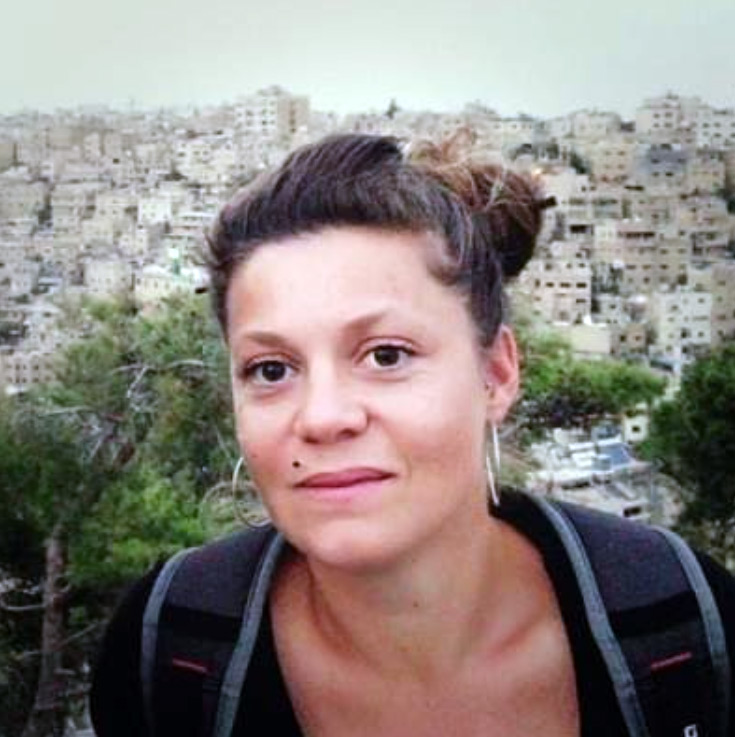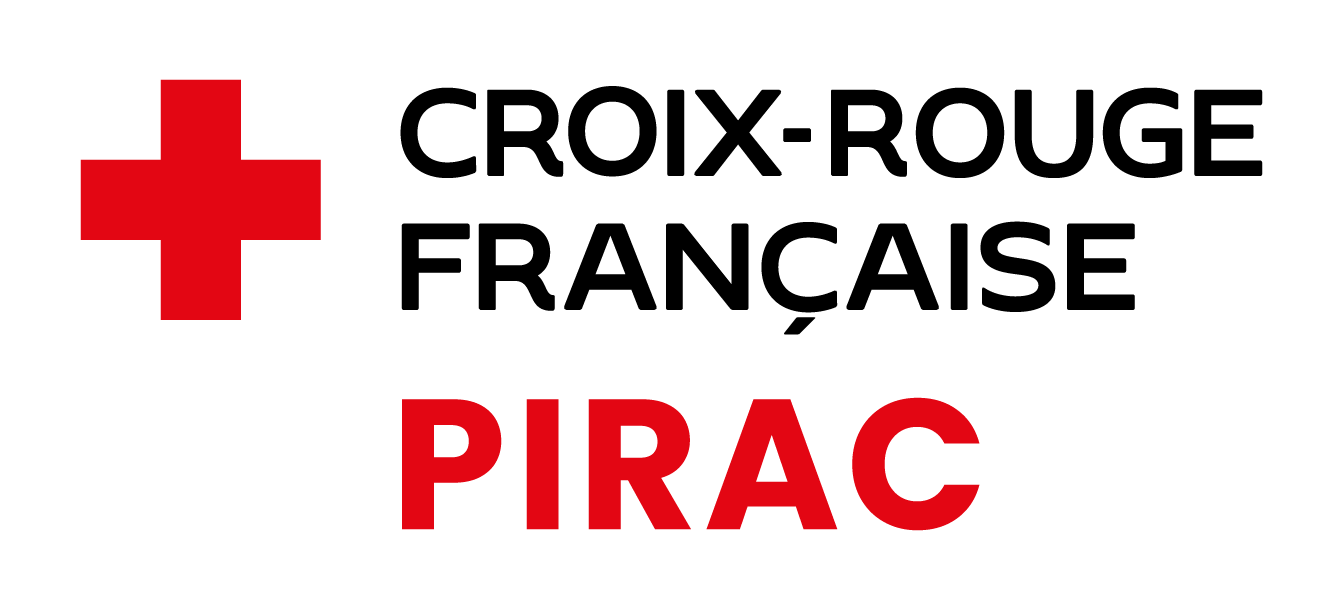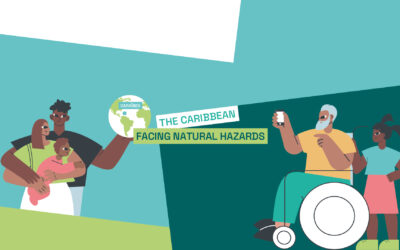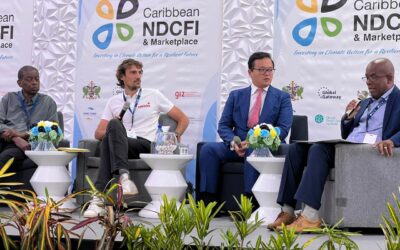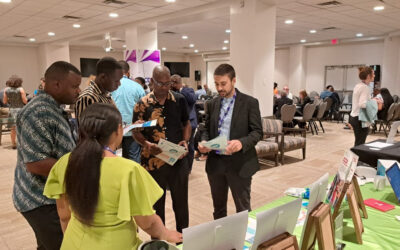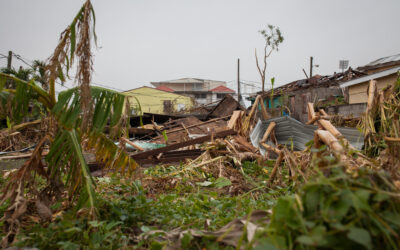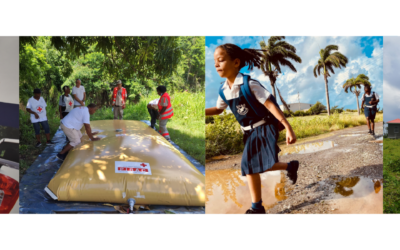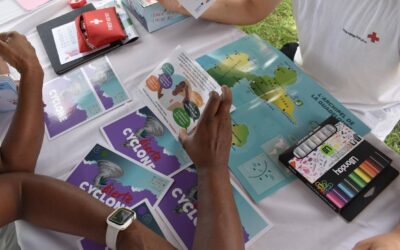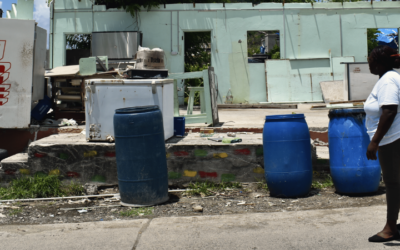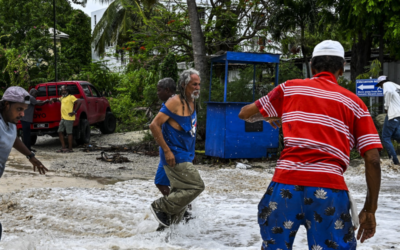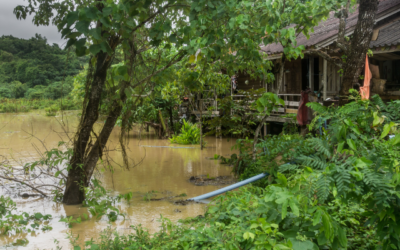Lisa Peyre is the technical and operational referent for mental health, psychosocial support and protection at ACTION CONTRE LA FAIM.
She led awareness-raising sessions on psychological first aid with the French Red Cross in French Guyana in July 2021 as part of the READY Together programme.
Why be a trainer?
After spending ten years in the field as a manager of mental health and psychosocial support projects in the context of humanitarian emergencies, and with all these fascinating experiences behind me, the idea of passing on my experience, particularly through training, came quite naturally to me. It is always a great pleasure for me, on the one hand, to talk about my experiences in the field and to pass on to others the expertise specific to the mental health and psychosocial support sector and, on the other hand, to be in contact with other actors in the field, to listen to their own experiences, to reflect on their questions and to try to support them in their commitment.
Who were these psychological first aid awareness courses aimed at?
Firstly, they were aimed at all the volunteers and employees of the French Red Cross in French Guyana. Thirty-seven people were trained in psychological first aid. In addition, 11 employees and volunteers from other local organisations working with vulnerable populations also participated in the sessions. The sessions were organised in a virtual format due to the health context.
What was the content of the sensitisations?
The sensitisations focused on discovering the principles of psychological first aid and their adaptation to the context of the COVID-19 pandemic in French Guyana. They constituted a first introduction to the psychological first aid approach, bearing in mind that more complete training courses exist but need to be carried out face-to-face.
Psychological first aid is a method for helping people in distress and in need of emotional support. It aims to help people overcome their difficulties while feeling listened to and supported.
Acquiring psychological first aid skills and understanding people’s reactions to a crisis enables the carer not only to help others, but also to apply these same skills to their own difficulties. “Observe, listen and connect” are the key words to keep in mind. The aim of these awareness-raising sessions was to better equip field workers to deal with the potential distress of the people they support on a daily basis and in particular to adapt to the new pandemic context and its particularities. The French Red Cross in French Guiana carries out health-related activities and the territory has recently been affected by the dengue and COVID-19 epidemics. The awareness-raising sessions gave the teams in the field the keys to help patients and their relatives deal with the upheaval linked to the health crisis by reassuring them, listening to their concerns and referring them to specialised services if necessary.
Do you have a special pedagogy for conducting virtual training?
The idea was above all to make the awareness-raising sessions as accessible and interactive as possible despite the virtual format. I started by sending the future participants a video to introduce myself and the activity in order to make the proposal more attractive and human. Then, it was mainly by using virtual tools that the training could be made interactive, such as the use of an online video platform. Also, during the training, the participants were able to use their smartphones to participate in multiple exercises, which made the training dynamic and participative by allowing the participants to be active in their learning.
E-learning can work very well if the format is not too long, if you offer a variety of activities that allow participants to be involved, and if you have good access to both the internet and sufficiently functional digital devices (smartphones, computers).
What was the feedback from the people reached?
The feedback was generally very positive, participants found these sessions very interesting and useful for their daily work. The time for exchanges and questions/answers on practical cases encountered in the field were also greatly appreciated.
It was often requested that these awareness-raising sessions be made more in-depth, which is quite legitimate since one hour of awareness-raising cannot replace a real training session (which usually lasts at least two full days) during which the participants would have plenty of time to put into practice concrete situations through role-playing for example.
In general, the participants expressed their strong interest in psychological first aid, which is necessary and useful in their daily work with vulnerable populations and even more so in the current pandemic context.
